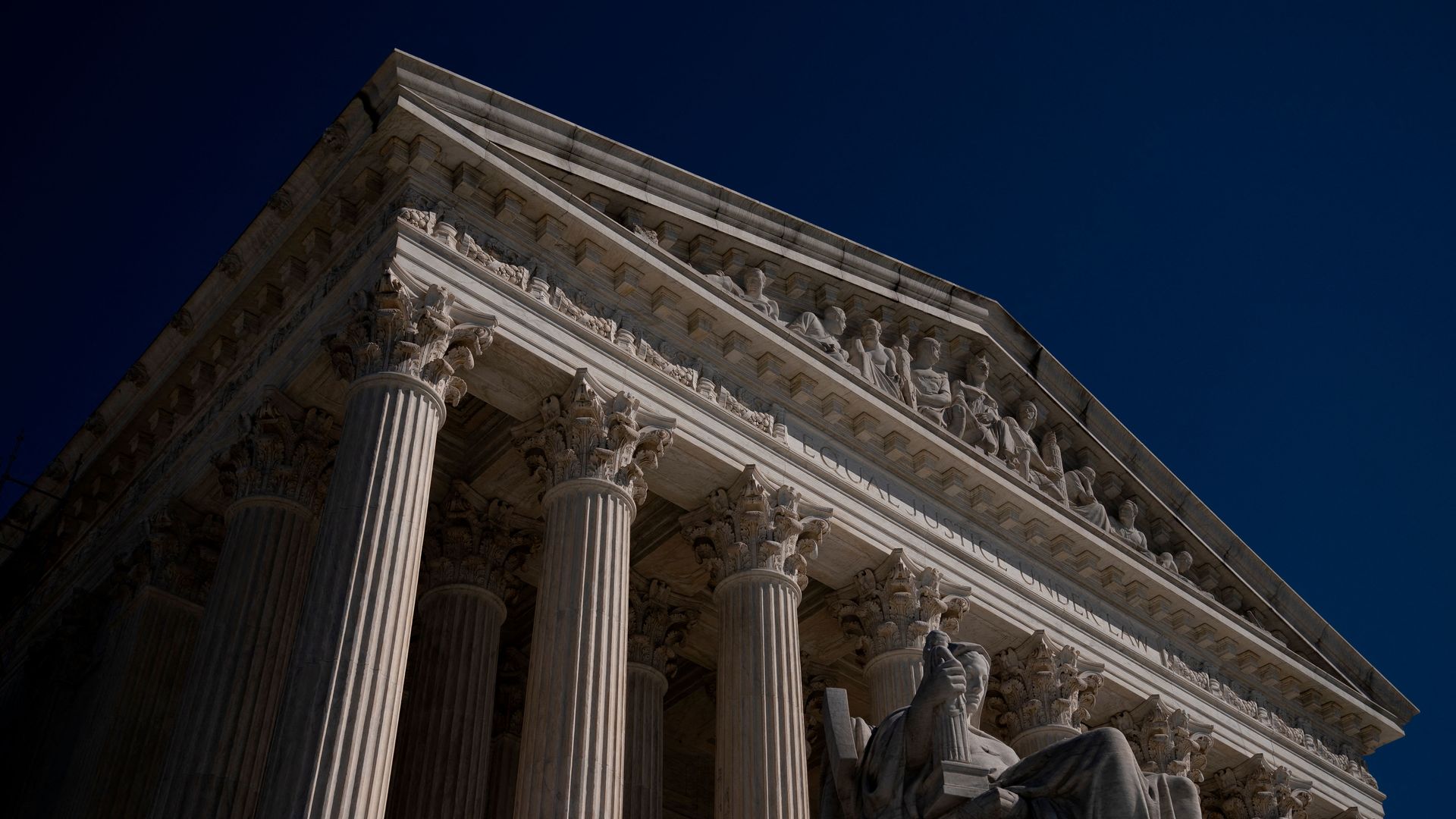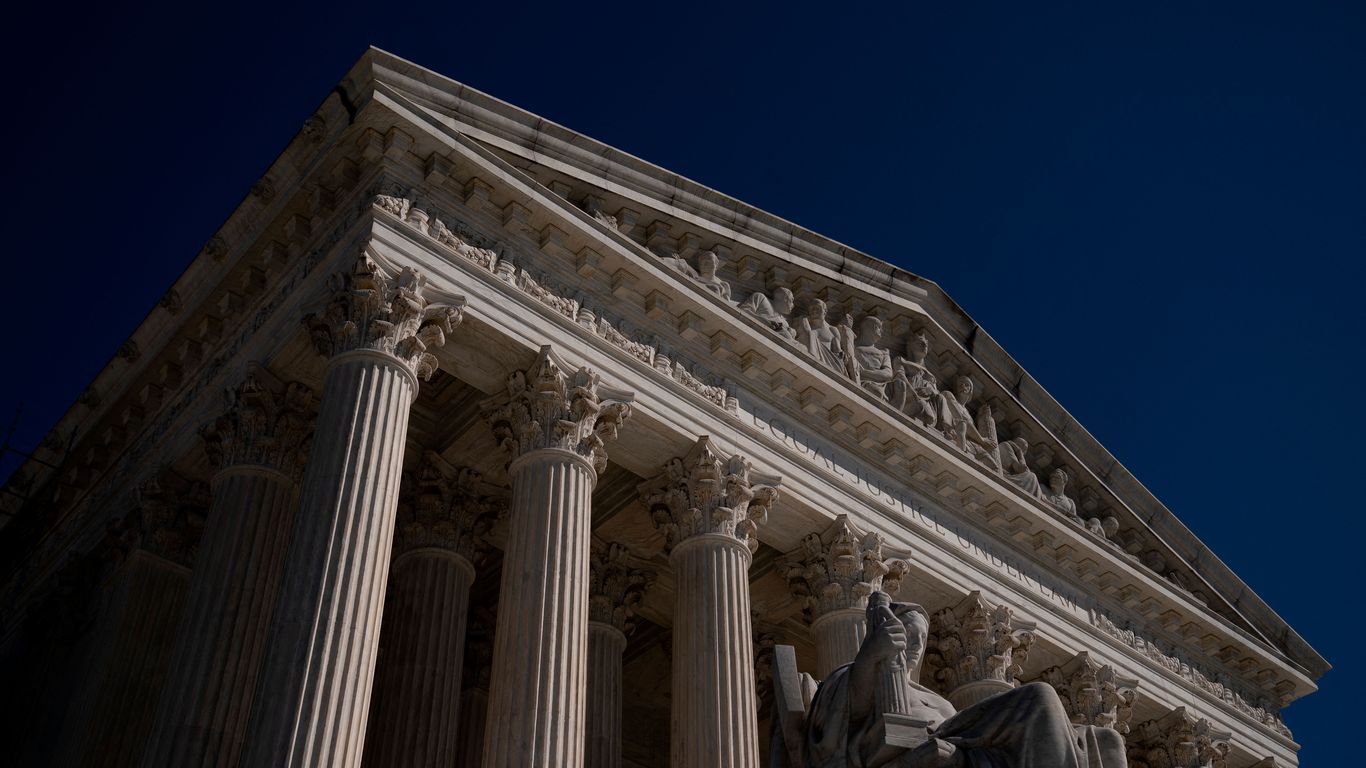
Photo: STEFANI REYNOLDS/AFP via Getty Images
The Justice Department on Friday asked the Supreme Court to immediately block federal court rulings that imposed restrictions on the widely used abortion pill mifepristone.
Why it matters: Justices have another high-profile abortion fight on their doorstep less than a year after overturning Roe v. Wade, ending federal protections on abortion.
- This case also poses an unprecedented threat to the Food and Drug Administration's decision-making authority.
- The availability of abortion pills right now is caught between conflicting federal orders, and the issue of which one prevails will be up to the justices.
Catch up fast: The New Orleans-based 5th U.S. Circuit Court of Appeals on Thursday partially blocked a Texas federal court order that halted the Food and Drug Administration's approval of mifepristone.
- The appellate judges decided to leave mifepristone available in the U.S., but reimposed restrictions the FDA had gradually removed over the years.
- Last night, a Washington state federal court confirmed that the Texas and the 5th Circuit rulings are not applicable in 17 states and the District of Columbia that had pressed a separate challenge to prescribing guidelines.
Details: The DOJ is asking the Supreme Court to issue a stay as soon as Friday on the lower court rulings because the reimposed restrictions on mifepristone are set to take effect on Saturday.
- If the portions of the Texas ruling that the 5th Circuit did not block take effect, they would "upend the status quo based on the court's deeply misguided assessment of mifepristone's safety," the DOJ argues.
- "If allowed to take effect, the lower courts' orders would upend the regulatory regime for mifepristone, with sweeping consequences for the pharmaceutical industry, women who need access to the drug and FDA's ability to implement its statutory authority."
- While the FDA has spent the week "grappling with" the Texas and 5th Circuit rulings, "another district court has enjoined FDA from doing anything to change the conditions on the distribution of mifepristone in 17 states and the District of Columbia — which means that FDA risks contempt if it takes action to permit the marketing of mifepristone in a manner consistent with the 5th Circuit's order."
- The Texas and 5th Circuit rulings reached an "unprecedented result only through a series of fundamental errors" that violate federal law, DOJ asserts.
Danco Laboratories, the manufacturer of mifepristone, also filed an emergency application asking the Supreme Court to block the Texas and 5th Circuit orders, arguing that they have "created regulatory chaos across the country."
- The uncertainty around mifepristone's availability means that "Danco cannot legally market and distribute mifepristone," the company says.
- The dueling rulings has resulted in "an untenable limbo, for Danco, for providers, for women and for health care systems all trying to navigate these uncharted waters."
- Danco argues that the 5th Circuit went against Supreme Court precedent that courts should "defer to FDA's expertise in evaluating data from dozens of clinical trials."
The big picture: The justices will have to issue a ruling on the availability of abortion pills, even though they previously argued the court should not be creating national abortion policy.
- Justice Samuel Alito wrote in the opinion of the Dobbs case that overturned Roe that the plaintiffs "failed" to show that court has the authority to decide how abortion should be regulated, and so the justices must "return" that power "to the people and their elected representatives."
- Similarly, Justice Brett Kavanaugh wrote in his concurrence that "[t]he nine unelected Members of this Court do not possess the constitutional authority to override the democratic process and to decree either a pro-life or pro-choice abortion policy for all 330 million people in the United states."
Go deeper: All eyes on SCOTUS for abortion pill ruling
Source: Read Full Article
